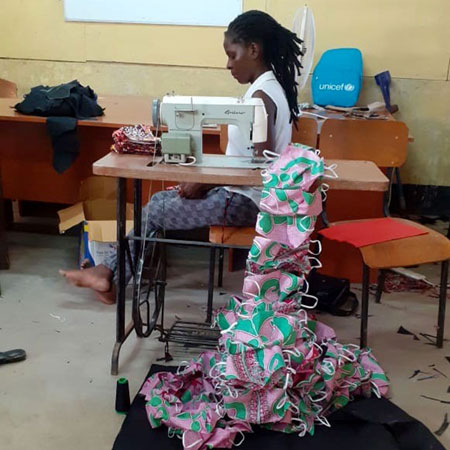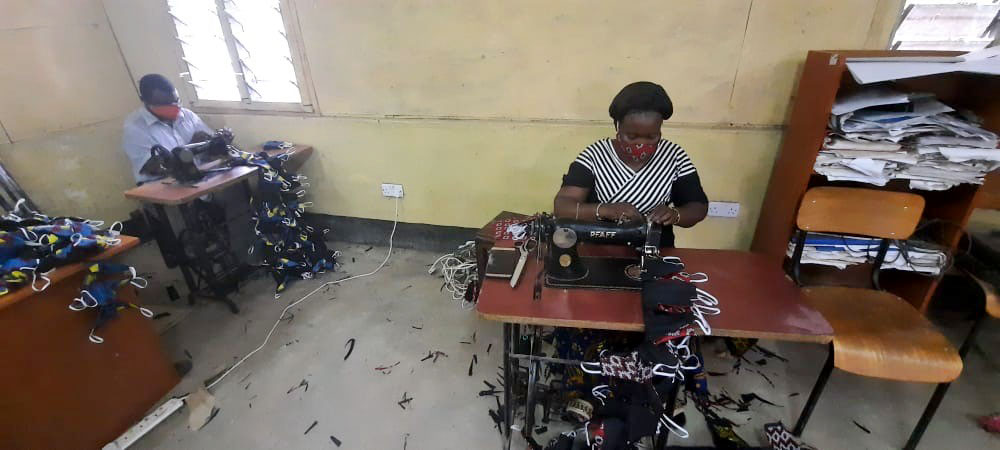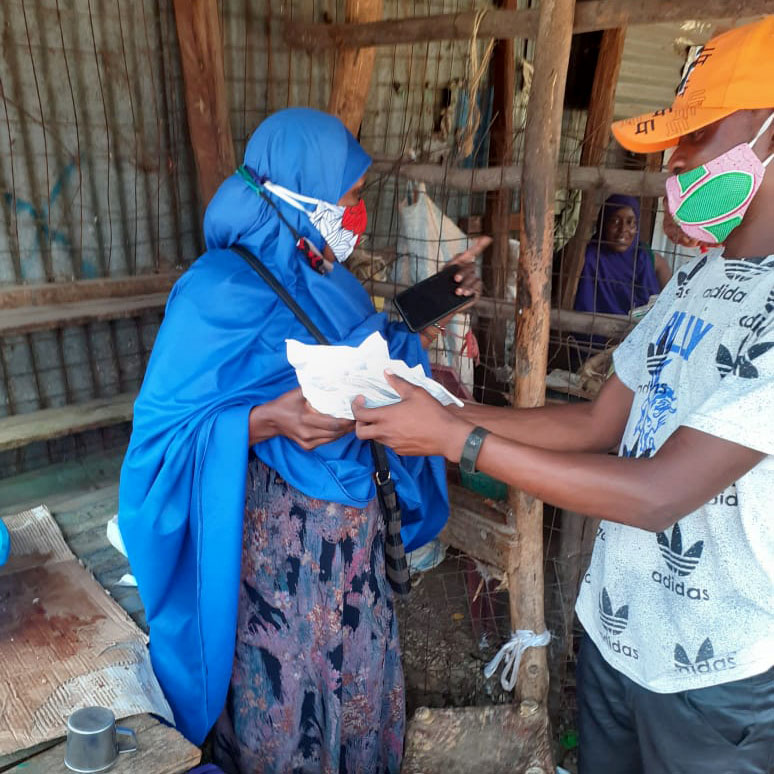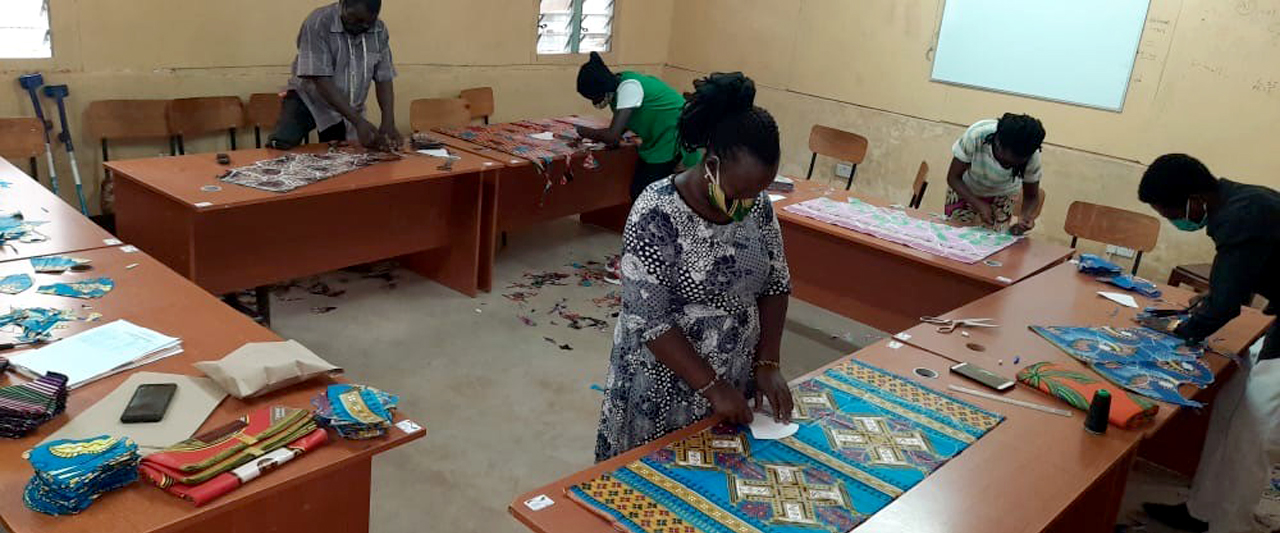In Kenya, the response to curb the COVID-19 pandemic was immediate. In late March, a countrywide quarantine was imposed—airports, schools, churches and mosques were closed, public gatherings were restricted and movement into and around the country was limited.
The travel restrictions extended to the country’s two main refugee camps, Dadaab and Kakuma, near the Sudanese border. Although there were exceptions—humanitarian aid workers, who were allowed entry on a case-by-case basis, and trucks delivering food aid—refugees were not allowed to travel out of the area.
In crowded Kakuma Camp—home to 190,000 refugees from across sub-Saharan Africa—social distancing was essentially impossible. Recognizing the urgent need for facemasks, the refugee-led organization Resilience Action International (RAI) partnered with Ipas to quickly begin making masks for elders, disabled people, single mothers, female entrepreneurs and others in need. With Ipas’s support, RAI purchased face mask-making material and hired tailors to make 3,300 masks, a task completed in three weeks.


The first 1,820 masks were distributed to health clinics operating in the camps, as masks for health-care workers were a priority. Over 300 other masks were given to the Orphans, Disabled and Women’s Education Program, and others to religious leaders who continued to circulate in the community and could help with distribution.

RAI distributed the remaining facemasks to self-employed youth and female entrepreneurs in Kakuma. “Women who run small businesses have been severely affected by the pandemic,” says Uwezo Ramadhani, Interim Executive Director for RAI. “Many have been forced to close their businesses that provide them with income.”
Xawo Ducale receives protective face masks in Kakuma Camp, Kenya.
Ramadhani says the mask-making effort has been “invaluable to Kakuma refugees. If you were physically in Kakuma you would see how desperate people are to get facemasks so they can run their daily activities.”
For more information contact [email protected]


